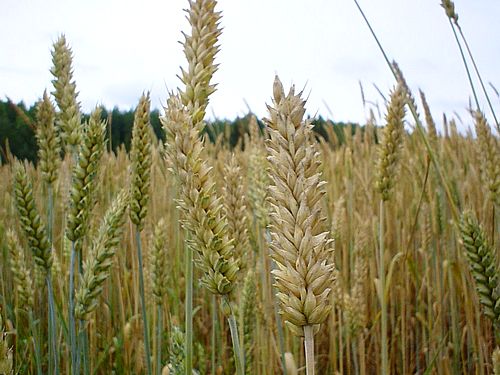
Throughout Lent, we’re exploring the parables of Jesus – the two dozen or so stories that were his chief means of describing the reality of God’s rule on earth.
Jesus is hoping we’ll say goodbye forever to something that most of us find rather enjoyable.
That would be sorting out everyone around us into two categories: Good People vs. Jerks.
Our language might be a bit different. We might opt for Wise vs. Foolish, Cool vs. Clueless, or Useful to Me vs. Don’t Bother.
But Jesus makes it clear that this practice always works against our best interests. He even tells a parable to drive home the point.
In Matthew 13 (verses 24-30 and 36-43), he describes a Palestinian farmer who plants seeds in his field. He aims to grow a crop of wheat. But when the tiny plants appear above the soil, it’s obvious somebody else has come along and sowed chaos.
Something else is growing there. He discovers a profusion of wheat and weeds growing side by side. But nobody can tell them apart.
Jesus is reporting a situation well known to Palestinian farmers. The unwelcome seedlings are bearded darnel, a weed that in the early stages of growth looks exactly like wheat. It grows at the same speed. It reaches the same height. Only when the heads of grain appear is it possible to tell the plants apart.
The heads of wheat are golden, while bearded darnel produces what look like little gray beards at the end of the stalks.
By that time, however, it’s too late to yank all the darnel out of the fields. The roots of the good plants and the weeds have become enmeshed. “Let both grow together until the harvest,” says Jesus. “Then you can safely separate the wheat from the weeds.”
The problem is, who wants to wait until God’s harvest – that is, the End of the World?
Most of us assume we are exceedingly well qualified to go ahead and start the sorting process. We know a weed when we see one. When we’re in the presence of other people, we can tell the good ones from the bad ones from the sneaky ones from the sad ones from the most-likely-to-succeed ones from the old-and-used-up ones – even as Jesus pleads with us, “I’m asking you not to do this. You will never get it right. Leave the harvesting to the Lord of the Harvest.”
Why is he so passionate about this?
We rarely recognize God’s champions. We may think we have the inside scoop on exactly what a growing saint looks like, but only God has eyes to see the true condition of human hearts.
And it just so happens that God delights in using flawed, unconventional people.
Moses identifies himself as a stuttering coward who could never stand up to Pharaoh. When an angel tries to recruit Gideon to save Israel, he responds, “Are you kidding? I’m the least of the least of the least when it comes to family background.” David, the warrior-king who would become “the man after God’s own heart,” starts out as a red-haired runt barely noticed by his own father. Paul, the future apostle, is introduced in the Bible as a hot-headed fundamentalist cheering on the lynching of Stephen, one of God’s key servants.
Do we really have eyes to see what God sees when he looks at other people?
Take a second look at the man who is so shy he can barely raise his voice loudly enough to introduce himself. Check out the bored teenager whose whole life is her iPhone. Watch the woman who crosses the Target parking lot crushed under the weight of providing for her family; now she is facing frightening health news.
Who are these people? These are the plants growing in God’s field.
On harvest day, it may turn out that they were God’s greatest champions.
When it comes to the people with whom we share our lives, God’s job is to do the sorting. The Savior’s job is to save.
What does that leave for the rest of us?
Our job is to love.
